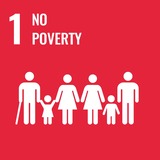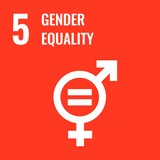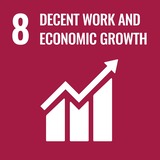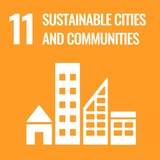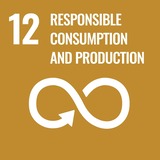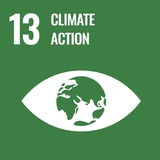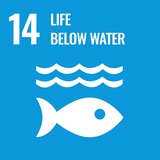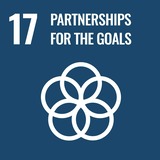Recity protects our oceans from plastic waste
Pondicherry, India
250 tonnes / year
Our story
The founders
Recity’s co-founders, Suraj Nanadakumar and Meha Lahiri, both came from very contrasting backgrounds. While Suraj belonged to the urban planning and infrastructure background, Meha brought a holistic experience in brand marketing. A common factor that connected their entrepreneurship journeys is the sole realization that the city transformation initiatives in India had disjointed and ineffective outcomes as they were being undertaken in silos without involving key stakeholders of the cities.
Re-city the city
Recity was born in 2017 with a dream to solve a multitude of urban issues by bringing citizens and various other stakeholders together to develop livable cities. The name ‘Recity’ captures the essence of the company with one simple idea – when a city malfunctions, you can ‘re-city’ to make it work for its people.
New challenges on the horizon
Five years ago, Recity began to divert waste from landfills and other Environmentally Vulnerable Points (EVPs) like hills, oceans, and forests. Over time, as we entered newer cities to solve their waste management, we learned that plastic waste is one of the most pressing urban issues. Despite a significantly high rate of plastic production of over 15 Mn. tonnes yearly across industries and categories, the disposal systems in India have not been able to solve the plastic waste crisis.
Keep plastics out of the environment
Based on our work on the ground, we learned that there are things beyond the city that affect and influence urban waste management challenges. Our learnings directed us to mine precise and actionable data around plastics to solve this problem in cities. We pivoted towards creating holistic and data-driven solutions backed by deep knowledge of ground implementation to keep plastics in the economy and out of the environment.
The process
"Growing up, I witnessed how urbanization changes the face of any city, and the picture wasn’t too pleasant. Today, we are channeling plastics out of the environment and impacting communities along the way. It is truly a humbling and fulfilling experience every day."
Recity
Meha Lahiri • Meha Lahiri, Co-founder, COO and CFOMaximise impact
To keep plastics in the economy and out of the environment, we foster a cross-value chain approach and build circular systems in cities and all environmentally vulnerable geographies like rivers, lakes, oceans as well as hills, and forests. We educate, influence, align, and partner with various stakeholders in the ecosystem such as waste generators, waste producers, waste workers, recyclers, and city governments. We want to ensure plastic waste is segregated at source from household and commercial channels as well as ethically bought from formal and informal waste workers, monitored at the collection levels through our Waste Intelligence Platforms, and processed into high-quality recyclates using our Material Recovery Facility’s advanced machinery.
Empower local communities
The workforce operationalizing the journey of waste, including plastics, is excruciatingly affected by socio-economic structures in the country. This creates an unfair, exploitative, and exclusionary approach. It has led to waste workers falling at the bottom of the occupational hierarchy and are riddled with illiteracy, financial insecurity as well as occupational health and safety challenges. With a firm belief that the road to a circular economy of plastics must include this first-mile workforce, we are committed to professionalizing formal and informal waste workers in the ecosystem on the frontlines. Our waste worker professionalization efforts include driving a healthier workforce by organizing various health initiatives, providing access to facilities and government benefits associated with their rights, creating collectives & cooperatives such as Self Help Groups, as well as upskilling workers to further open avenues for better income opportunities.
Reduce & recover
We have been laying the foundation for efficient, inclusive, and sustainable waste management systems across cities like Pondicherry, through on-ground implementation and effective partnerships with the city administrations. Our Waste Intelligence platform digitizes the waste processes, ensuring transparency and traceability of the journey of plastics, and thereby creating accountability among stakeholders. By driving source segregation and technology-enabled governance of waste, Recity has been successfully recovering and diverting plastics from the environment to end-of-life scientific processing.
Do no harm
The industrial boom, especially in the last few decades has increased the demand for consumer goods, which further inevitably led to a rise in packaging made of plastics, most of which ends up as trash within a very short time of usage. This existing take-make-waste system is unsustainable in the long run. Recognizing how poor citywide solid waste management systems and lack of formal monitoring mechanisms led to increased plastic waste entering the oceans and other environments, we designed our solutions to channel waste, including the low-value and hard-to-recycle plastics of packaging, into scientific processing and thereby back into the economy.
Set high standards
Quality and excellence are the key drivers to how we fulfill our purpose and achieve our vision. From extending government benefits towards waste workers to ethically sourcing plastics for ensuring pay parity and fair incentives to the waste professionals across the value chain, we are committed to opening the best possible avenues for this workforce. Our Waste Intelligence platform that digitizes waste monitoring in cities is an ISO 27001 certified SaaS platform. Our first Material Recovery Facility, which is supported by Godrej Consumer Products, in Pondicherry is equipped with state-of-the-art machinery for opening the gateways to the production of the highest quality recyclates for driving sustainable green supply chains.
FAQs
CleanHub empowers companies to take immediate responsibility for their plastic footprints. We connect ocean-loving brands with local communities, and facilitate the collection and safe processing of non-recyclable plastic. We understand the importance of proving impact, so we’ve built track & trace technology to provide evidence of how much plastic is collected, and where it ends up after we take care of it.
We choose recovery methods with the lowest environmental impact possible, and use our market position to enforce better working conditions for local workers.
80% of the plastic waste that ends up in the oceans is so-called flexible packaging or multilayer packaging, like chip packets, sauce sachets, etc. This material is either impossible to recycle or there is no demand from the market for the products (unlike water bottles which are commonly collected as they can be recycled, and so have ‘value’). Plastic that can’t be recycled is openly burned in small backyard fires or in landfills, or it is carried away into nature by the monsoon or strong winds. While we do collect all plastics, we focus on non-recyclable plastic to maximize our impact.
In order to stop ocean bound plastic, we need to significantly increase plastic recovery rates in high leakage locations. To achieve that, we empower communities around the world to cope with their own plastic waste, create incentives, develop waste management standards and foster local entrepreneurship. In our network of recovery endpoints we provide critical off-take agreements to safely treat plastic waste.
Plastic pollution is a global problem that affects us all. CleanHub is building a global network of local Collection Hubs in high impact locations to facilitate the collection and safe processing of non-recyclable plastic. We operate primarily in South (East) Asia which is the gateway for more than 80% of all plastic that enters our oceans. With your contribution we can reduce the mismanagement of plastic waste in these regions to eventually stop this environmental crisis.
Recyclable goods are sold for local recycling. Non-recyclables are sent for co-processing.
Co-processing refers to the simultaneous recycling of mineral materials and recovery of energy in the process of cement manufacturing and achieves a superior environmental performance as compared to landfill and incineration. For co-processing recovery we partner with Geocycle.
To learn more, read our blog - What happens to the collected waste
Plastic neutrality means that for every amount of plastic created, an equal amount of plastic waste is retrieved from the environment to be appropriately disposed of - either recycled or repurposed.
We work with brands to calculate their plastic footprint and recover the equivalent amount from the environment in high leakage countries, such as Indonesia or India. Some brands want to go further and recover more plastic than they emit, earning them Plastic Neutral + status. . Every contribution directly prevents plastic from entering our oceans and supports the development of local waste management infrastructure.
To stop plastic from entering the environment, we need to get to a point where the material is collected as close to the consumer as possible, and intercepted before it can reach the ocean. The majority of our plastic efforts are door-to-door collection or other smart ways to aggregate waste in one point. We also finance projects with passive technologies that catch plastic in rivers. The smallest fraction of plastic stems from beach cleanups or is directly sourced from the ocean.
Recovering plastic from the environment involves three distinct operations. Firstly the collection of the plastic, secondly the sorting of plastic into its unique types and thirdly the safe and final treatment. We digitize the recovery of ocean bound plastic from start to finish.Our Hubs use our technology to track the full collection process, which means we can verify every piece of plastic that is collected and what happens to it after we take care of it.
Watch this video to see how it works
We choose the best recovery method according to three steps. Firstly, available recovery options are ranked according to the waste management hierarchy, i.e. Recycling > Energy Recovery > Landfill. Secondly, we rank all options on the basis of life-cycle assessment results that determine related Co2 emissions. Thirdly, all recovery options are ranked by their level of technology and safety. CleanHub only works with recovery companies that operate according to the European code of conduct.
Sign up to our newsletter
Subscribe to receive monthly insights. Plus, we’ll collect 1kg of plastic on your behalf.
Our accreditation
We're the first plastic credit system verified by TÜV SÜD


